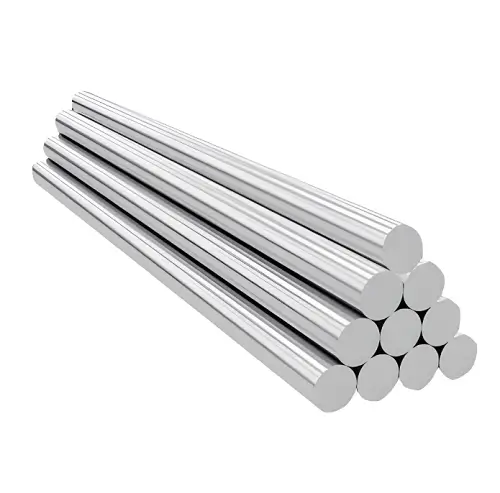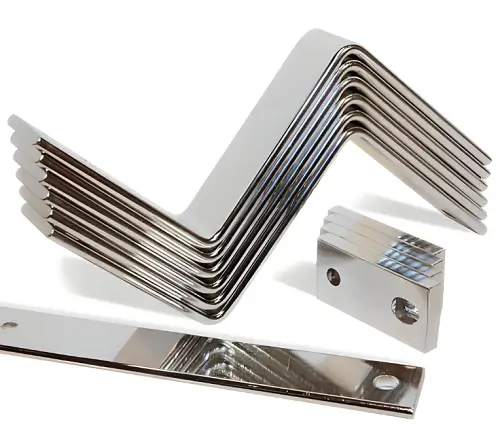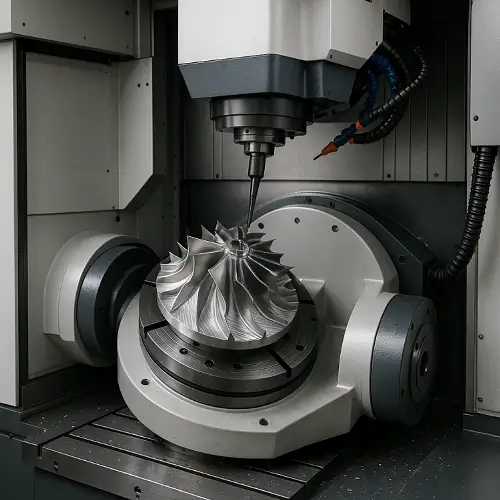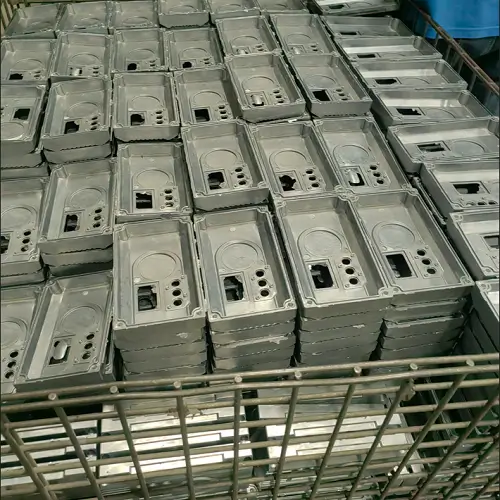When choosing aluminum alloys for CNC machining, two grades dominate engineering discussions: 6061 and 7075. Both are lightweight, corrosion-resistant, and widely available, yet their performance diverges in strength, machinability, and cost. Engineers, buyers, and machinists often face the same question: Is 6061 or 7075 the better choice for CNC parts?
This guide compares both alloys in terms of mechanical properties, cutting parameters, tool wear, finishing results, and application suitability, with insights drawn from JeekRapid’s CNC machining experience.

Mechanical Properties Overview
The fundamental difference between 6061 and 7075 lies in strength versus machinability. The table below summarizes their key metrics:
| Property | 6061 Aluminum | 7075 Aluminum |
|---|---|---|
| Density (g/cm³) | 2.70 | 2.81 |
| Tensile Strength (MPa) | 310 | 560 |
| Yield Strength (MPa) | 270 | 480 |
| Hardness (HB) | 95 | 150 |
| Elongation (%) | 12 | 7 |
| Corrosion Resistance | Excellent | Moderate |
| Typical Tolerance in CNC | ±0.02 mm | ±0.02 mm |
In short, 6061 favors easier machining and versatility, while 7075 prioritizes strength under stress.
Machinability and Cutting Speed Comparison
From a machinist’s perspective, 6061 is friendlier on tools and allows higher cutting speeds. 7075, while offering superior strength, requires reduced feeds and careful cooling.
| Alloy | Tool Diameter | Spindle Speed (RPM) | Feed Rate (mm/min) | Tool Wear Notes |
|---|---|---|---|---|
| 6061 | 6 mm end mill | ~12,000 | ~1,200 | Minimal wear; mist cooling sufficient |
| 7075 | 6 mm end mill | ~9,000 | ~800 | Higher hardness; TiAlN-coated tools recommended |
| 6061 | 12 mm end mill | ~6,500 | ~1,000 | Stable finish; good chip evacuation |
| 7075 | 12 mm end mill | ~5,000 | ~600 | Slower feed; coolant essential |
6061 machines up to 20–30% faster, saving cycle time and tool costs compared to 7075.
Surface Finish and Post-Processing
Both alloys can achieve fine surface finishes (Ra < 1.6 µm) with optimized toolpaths. Differences appear during finishing:
-
6061 responds consistently to anodizing, producing clear or colored finishes.
-
7075 can anodize as well, but color consistency varies, and hard anodizing is more common for wear resistance.
-
For mirror-like finishes, 6061 offers lower tool chatter and smoother polishing results.
Cost and Availability
-
Raw material price: 7075 is typically 30–50% more expensive than 6061.
-
Machining cost: 6061 reduces tool wear, allowing faster cycle times.
-
Scrap and rejection rate: 7075’s hardness increases risk of tool breakage and part rejection, adding hidden costs.
At JeekRapid, machining two identical aerospace brackets showed 6061 parts delivered ~25% lower overall cost compared to 7075, largely due to cycle time and tool consumption differences.

Applications in CNC Machining
-
6061 Aluminum: Automotive prototypes, electronic housings, jigs, and fixtures requiring corrosion resistance.
-
7075 Aluminum: Aerospace structural parts, defense components, high-performance sporting goods.
Example: JeekRapid produced 6061 housings for a UAV prototype (lightweight, corrosion resistant), while the same customer used 7075 for load-bearing brackets requiring high strength.
FAQs
Q1. Which alloy is stronger, 6061 or 7075?
7075 delivers nearly double the tensile strength of 6061.
Q2. Which is easier to machine?
6061 is significantly easier, with higher cutting speeds and longer tool life.
Q3. Does 7075 anodize differently?
Yes. 6061 provides better color uniformity, while 7075 often requires hard anodizing for wear resistance.
Q4. Which is better for aerospace parts?
7075 is preferred for high-load aerospace structures, while 6061 is used for non-critical components.
Q5. What tolerances are achievable in CNC machining?
Both alloys can reach ±0.01–0.02 mm tolerances with advanced CNC setups.
Conclusion
The choice between 6061 and 7075 aluminum in CNC machining depends on priorities:
-
6061 → easier to machine, more affordable, excellent corrosion resistance.
-
7075 → high strength, suitable for demanding aerospace or defense applications.
For design teams evaluating both options, JeekRapid offers machining expertise across aluminum alloys, balancing cost, cycle time, and precision to match project needs.
Explore more on our CNC Machining Services page.
Related reads: 304 vs 316 Stainless Steel Machining | Delrin vs Nylon CNC Machining


